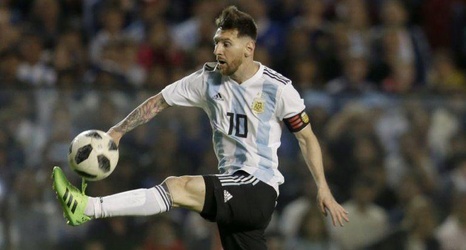The capital of the world’s first communist country has become a study in contradictions on the eve of Eastern Europe’s first World Cup.
In Theatre Square, across the street from the Bolshoi Ballet, a granite statue of a stern-faced Karl Marx is now flanked by bright red, white and blue banners greeting visitors in two languages.
A few miles away, in a courtyard fronting Luzhniki Stadium — site of both the tournament’s opening game and the final — a massive likeness of Vladimir Lenin in a winter overcoat rises from behind a souvenir venue, ostensibly standing watch over the kind of consumerism the real-life Lenin led a revolution to repel.
